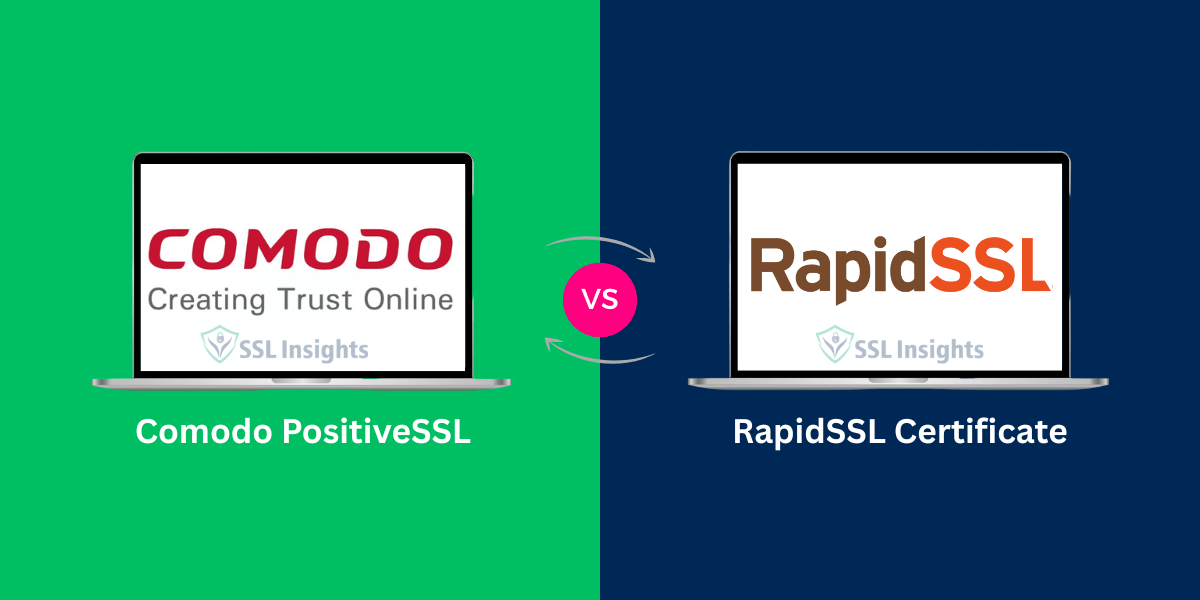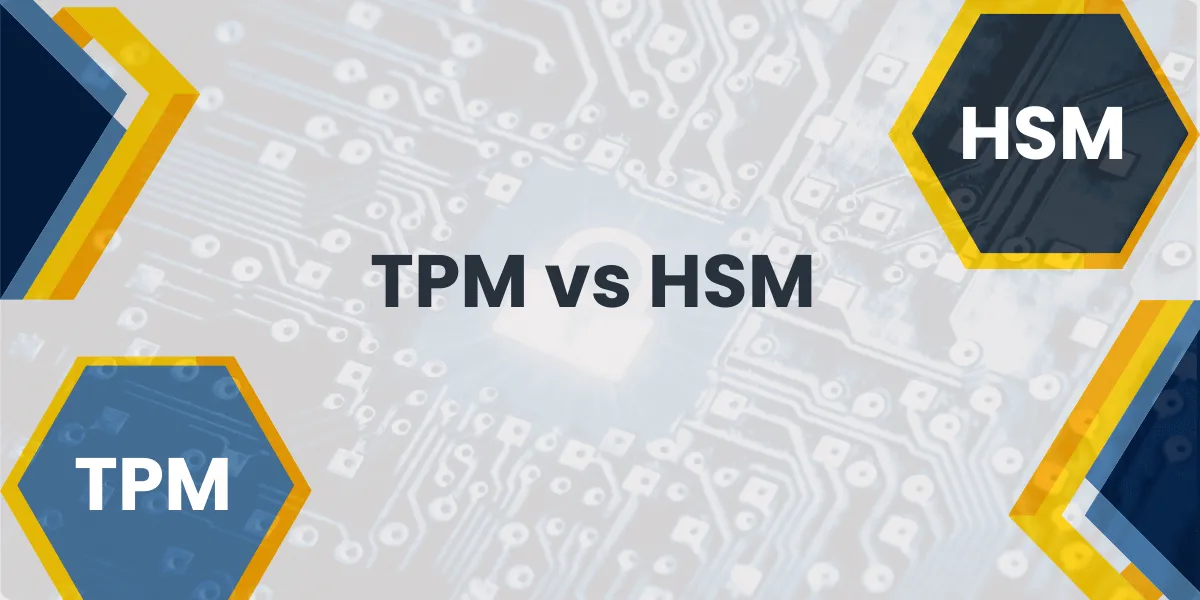Comodo PositiveSSL and RapidSSL are domain validation certificates that encrypt data between browsers and servers. Comodo PositiveSSL costs $7.95 per year and offers 256-bit encryption with 99.9% browser compatibility. RapidSSL is priced at $18.65 per year with similar encryption strength. Both certificates show a Tune icon in browsers and protect one domain. Comodo PositiveSSL has faster validation times of 5-15 minutes, while RapidSSL takes 10-15 minutes for validation.
This Comodo PositiveSSL vs RapidSSL comparison cuts through the marketing noise to reveal which budget SSL certificate fits your specific use case – whether you’re running a WordPress blog, launching a SaaS product, or securing an e-commerce store.
Quick Comparison: PositiveSSL vs RapidSSL
| Certificate | Price Range | Warranty | Customer Ratings | |
| Comodo PositiveSSL | $7.95–$11.95/year | $50,000 | Buy PositiveSSL | |
| RapidSSL | $18.65–$19.98/year | $10,000 | Buy RapidSSL |
Comodo PositiveSSL: The Budget Champion
Comodo PositiveSSL – which is technically issued by Sectigo now, since Comodo rebranded back in 2018 – costs somewhere between $7.95 and $11.95 per year depending on where you buy it. It’s the certificate you choose when you know that a $10/year SSL and a $200/year SSL both do the same job: they encrypt the connection between your visitor’s browser and your server using 256-bit encryption.
The certificate comes with a $50,000 warranty, which sounds impressive until you realize that SSL warranties only pay out if the certificate authority screws up and issues a certificate to the wrong person (which basically never happens). Still, if you’re filling out a compliance checklist that asks “What’s your SSL warranty amount?”, you get to write down a bigger number than RapidSSL buyers.
Pros of Comodo PositiveSSL Certificate
- Legitimately the cheapest legit SSL you can buy – we’re talking the cost of a fancy coffee per year
- That $50,000 warranty number makes you look good on compliance forms, even if it’s mostly for show
- Sectigo’s been doing this since 1998 (back when they were Comodo), so they know their stuff
- Issues in 2–5 minutes once you click the validation email or upload the DNS record
Best for: If you’re running a WordPress blog with a small WooCommerce shop, a portfolio site for your freelance business, a SaaS MVP you’re testing with early users, or literally any project where saving $10–15 per year actually matters because you’re buying certificates for multiple sites.
Real talk example: I talked to a guy who runs a local plumbing company’s website. He processes maybe $30K in online bookings per year. He bought PositiveSSL for $7.95, installed it via cPanel in about 10 minutes, and over three years he saved about ~$15 compared to RapidSSL.
RapidSSL: DigiCert’s Budget Offering
RapidSSL is DigiCert’s budget option, priced between $18.65 and $19.98 annually depending on the reseller and whether you’re buying multiple years upfront. It’s the same Domain Validation certificate as PositiveSSL – same encryption strength, same validation process, same 2–5 minute issuance time. The difference? It says “DigiCert” in the certificate details, and DigiCert is the name that shows up on enterprise security approved-vendor lists.
Think of RapidSSL as buying the store-brand cereal that’s made in the same factory as the name-brand cereal, except in this case the name-brand factory actually charges you more for the privilege of having their logo on the box. Sometimes that logo is worth it.
Pros of RapidSSL Certificate
- DigiCert’s reputation opens doors – if you’re selling to IT departments or going through security audits, this matters
- Same support infrastructure as DigiCert’s premium certificates, so you’re not getting second-tier treatment
- The site seal actually impresses some people – when visitors see “Secured by DigiCert,” there’s a perception of legitimacy
- Pricing is more consistent across resellers than PositiveSSL, so you’re less likely to find weird price gaps
Best for: If you’re running a SaaS product and your customers include companies with actual security teams, if you’re doing $100K+ in annual revenue and the $8/year cost is a rounding error, if you’re a consultant or agency and clients literally ask “what SSL provider do you use?” during onboarding, or if you just sleep better at night knowing you have a tier-1 certificate authority.
Real talk example: A friend runs a small HR software platform. About 30% of his customers are mid-sized companies that require vendor security questionnaires. One question literally asks “Are SSL certificates issued by a recognized CA?” He chose RapidSSL specifically because writing “DigiCert” on that form got him through procurement faster. The $15/year cost was totally worth avoiding a two-week approval delay.
Compare Comodo PositiveSSL vs RapidSSL: Price vs Perception
| Product Features | Comodo PositiveSSL | RapidSSL Certificate |
|---|---|---|
| Certificate Authority | ||
| Single Domain | Single Domain | |
| $7.95/yrView Pricing | $18.65/yr.View Pricing | |
| Both www + non-www | Both www + non-www | |
| Domain | Domain | |
| Minutes | Minutes | |
| up to 256-bit | up to 256-bit | |
| 2048 bits | 2048 bits | |
| Medium | Medium | |
| Unlimited | Unlimited | |
 |
||
| $50,000 | $10,000 | |
| 30 days | 30 days | |
| 99% | 99% | |
| 24/7 Live Chat | 24/7 Live Chat | |
Final Verdict: It Depends on Who’s Looking
Here’s my take after reviewing both certificates, talking to website owners, and honestly overthinking this more than anyone should:
Choose Comodo PositiveSSL if your customers aren’t going to inspect your SSL certificate details, you’re price-sensitive (or just practical), you’re securing multiple sites and the savings add up, or you simply want reliable encryption without paying a brand premium. The security is identical. The encryption is identical. You’re saving money for the same outcome.
Choose RapidSSL if you’re in B2B sales and clients ask security questions, you go through vendor approval processes that name-check certificate authorities, the $18–$20/year cost is genuinely negligible to your business finances, or you just prefer having a tier-1 CA name for peace of mind (which is totally valid – peace of mind has value).
The uncomfortable reality? About 90% of websites would be perfectly fine with PositiveSSL and are essentially paying a brand tax for RapidSSL. But that remaining 10% – the ones dealing with enterprise procurement, security audits, or clients who actually understand SSL certificates – will find that the RapidSSL premium is worth every penny because it saves time and builds credibility.
Pick based on who you’re trying to impress. If it’s regular customers who just want a secure checkout, go cheap. If it’s IT directors evaluating your security stack, pay up for the name recognition.
FAQs: Comodo PositiveSSL vs RapidSSL Certificate
What’s the cheapest SSL certificate option?
Comodo PositiveSSL at $7.95/year through authorized resellers like ComodoSSLStore. For completely free SSL, Let’s Encrypt offers automated 90-day certificates with no warranty or official support.
Which certificate is best for beginners?
PositiveSSL is simpler for beginners due to lower cost and forgiving learning curve. Both certificates install identically on cPanel, WordPress, and major platforms – the validation process is the same regardless of CA.
Do these certificates work with WooCommerce and Shopify?
Yes, both PositiveSSL and RapidSSL work with WooCommerce (WordPress), Shopify, BigCommerce, and all major e-commerce platforms. Payment processors like Stripe and PayPal don’t require specific certificate types – any valid DV SSL works.
Can I switch certificates without downtime?
Yes, install the new certificate files on your server, update your configuration to reference them, and reload your web server. Total downtime is typically under 60 seconds during the configuration reload.
Which certificate issues faster?
Both issue in 2–5 minutes after domain validation. Issuance speed depends on how quickly you complete validation (email click, DNS record propagation, or HTTP file upload) rather than the certificate authority.

Priya Mervana
 Verified Web Security Experts
Verified Web Security Experts
Priya Mervana is working at SSLInsights.com as a web security expert with over 10 years of experience writing about encryption, SSL certificates, and online privacy. She aims to make complex security topics easily understandable for everyday internet users.



